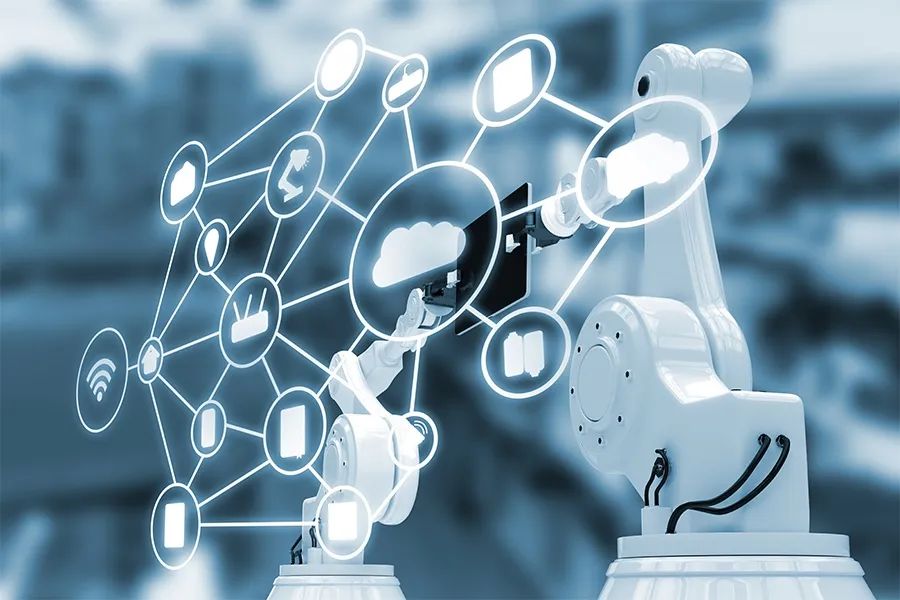Industry Internet promotes digital economic development
Industry Internet is now teaming up with the consumer Internet, becoming a new driving force for promoting digitization in our country’s economy. Its industry scale is expected to grow from 4 trillion yuan in 2025 to 12.22 trillion yuan in 2030. At the same time, the coverage of Industry Internet is no longer limited to industries such as manufacturing, agriculture, education, healthcare, entertainment, and servicing, all industries are hopping on the “fast train” of the Internet to achieve digital transformation and development.
Traditionally, the real economy has been the foundation for stable and healthy economic development. However, in recent years, our country’s real economy has faced a series of challenges such as mismatched supply and demand, increase costs, and insufficient innovative development momentum. This calls for accelerated transformation and upgrading. Industry Internet, with its characteristics of diverse connection types, extensive industry applications, and deep process re-engineering, is increasingly becoming an important driving force for economic growth. It plays a crucial role in improving the labor productivity of existing industries, nurturing new markets and sources of industry growth, achieving inclusive and sustainable growth. From the perspective of socio-economic development, the emergence of Industry Internet enhances the “empowerment” of information technology, providing a significant opportunity for quality, efficiency, and dynamic changes in the real economy. Therefore, countries around the world are taking Industry Internet development as an important means to shape national future competitiveness.

Industry Internet is an inevitable path for the future development of industries. However, from the perspective of current development progress, low concentration, lack of established leading companies, and excessively high trading proportions still limit the widespread adoption of Industry Internet. Our country urgently needs to carry out industry integration and guide the direction of industrial development. Experts believe that these challenging issues will be the key factors affecting Industry Internet’s contribution to economic development.
Industry Internet mainly involves integrating Internet technology and Internet thinking into traditional industries to promote their transformation and upgrading, rather than overthrowing them. Its business logic is to empower traditional industries with Internet technology and tools to enhance their capabilities in service and operations.
As Industry Internet primarily provides services to enterprises, the diversity and complexity of pain points and demands vary for each company based on their industry, size, and development stage. This leads to diversity in enterprise services, making it challenging to mathematically classify and accurately describe the types of Industry Internet in a formulaic manner.
The market demand for Industry Internet exhibits clear industry attributes. Industries such as petrochemicals and automobile manufacturing, for instance; differ significantly in upstream raw materials or components, production methods, data approaches, production equipment, product forms, downstream markets, and many other aspects. Thus, the Industry Internet formed by these two industries will remain independent and parallel.
With the wave of Industry Internet sweeping traditional industries, cloud computing, big data, and artificial intelligence are beginning to integrate on a large scale into sectors like finance, manufacturing, education, healthcare, retail, entertainment, and logistics. Experts suggest that due to the distinct industry characteristics of Industry Internet, numerous new first-tier and second-tier cities, which gather innovative resources and vertical industry foundations, have the opportunity to foster leading Industry Internet enterprises that match local industry features and effectively drive local industry development.
Industry Internet can comprehensively utilize new-generation information technologies such as the Internet, mobile Internet, Internet of Things, big data, cloud computing, and artificial intelligence. It fully leverages the optimization and integration roles of the Internet in resource allocation for production factors, bridges internal and external connections between various industries and businesses, optimizes resources and value chains from the perspective of the entire industry chain, achieves deep integration between the Internet and physical industries, precise governance, and public services. This ultimately reduces the operational costs of the entire industry, enhances its operational quality and efficiency, and constructs a digital ecosystem that facilitates collaborative coexistence between industry chains and industrial networks.


熱門頭條新聞
- Revolutionizing Legal Work: How Robin AI Accelerates Contract Review
- TyFlow brings Stable Diffusion AI directly into 3ds Max
- Gamescom 2024
- TRANSFORMERS: GALACTIC TRIALS HEADS TO CONSOLES AND PC THIS OCTOBER
- STAKE YOUR CLAIM IN KINGDOM, DUNGEON, AND HERO OUT NOW ON STEAM
- MBC’s Shahid platform announces premiere of ‘Grendizer U’
- Award-Winning Studio Secures 6 Million SEK in Investment
- FARMING SIMULATOR 25 AT FARMCON: GIANTS SOFTWARE ANNOUNCES PRE-STREAM & STAGE SCHEDULE
